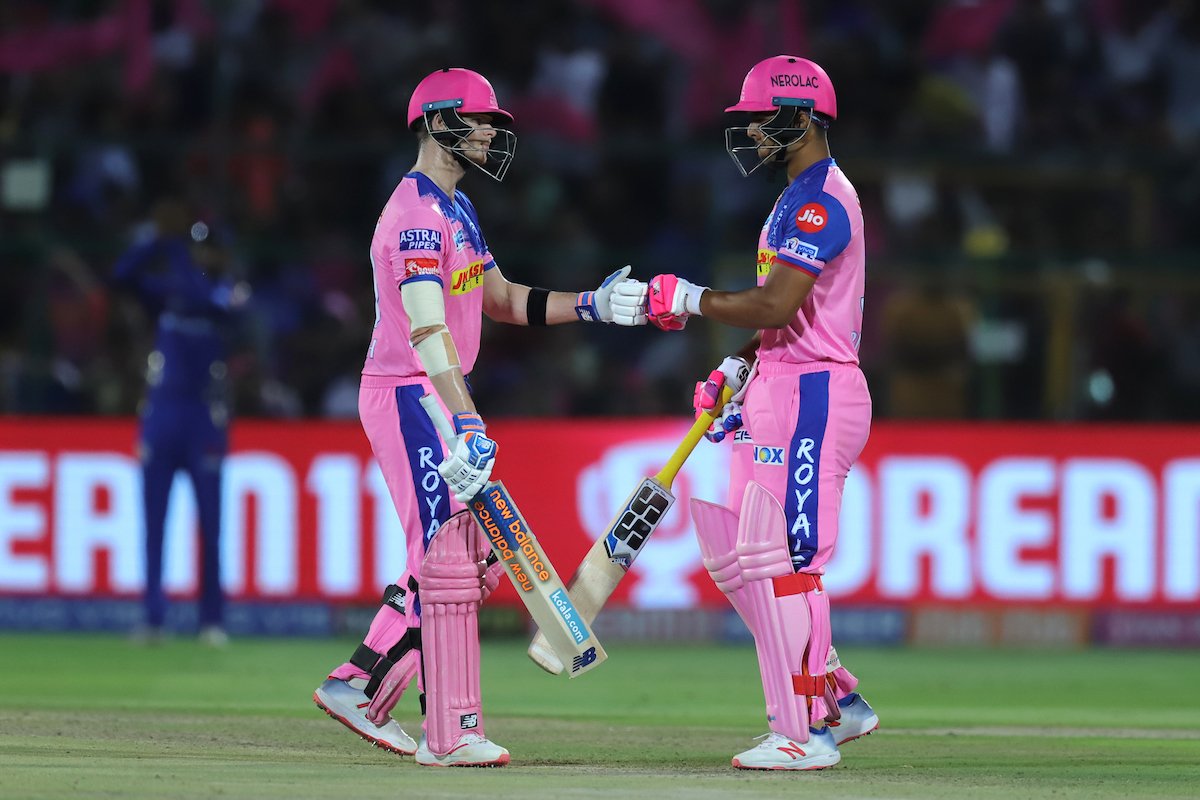IPL 2019 | What worked and what didn’t - Rajasthan Royals

You never want to be a Rajasthan Royals owner, do you? Probably the nicest of the franchises in terms of contributions to Indian cricket, and the most emotional towards their recruits, it is a bittersweet irony that they have never been able to lay hands on the silverware after the 2008 success.
T20 Cricket can often be vitriolic enough for some teams to not help them go past the few privileged ones. When Rahul Dravid was in the charge of Rajasthan Royals, he had created a winning mentality in the team, but more than that, he had created an atmosphere where growth was the major order of the day. While that helped them produce a chain of young international cricketers and some prospects for the future to bank on, one thing that has never left the Royals’ boardroom is “emotion”.
They are emotional enough to play four overseas players in almost all matches, even if the situation demands otherwise, they don’t even mind to award every major performer in all overseas leagues and club them together which brings the basic contradiction of the modern-day T20 to the fore.
T20, for all its preoccupied smartness, has moved away from the times of gathering the stars and making a team around it. And as Chennai Super Kings and Mumbai Indians have proved it time and time again, it is all about being smart on the field and follow a pattern formed with the cumulative percentage options that not only guarantee them using the match-ups and instincts in a follow through manner but also ensures at least a play-off finish.
This very lack of understanding was the major reason why Rajasthan Royals have suffered the worst this season and ended up at the seventh position on the points table, and were lucky not to finish as the wooden spooners thanks to Royal Challengers Bangalore’s terrible net run rate.
What didn’t work?
In 2018, when Jos Buttler left the campaign mid-way due to his international duty, the Royals were left like a scrambled team, having no clue about how to approach the team ideology. Buttler was set to leave mid-way this year, and Royals should have made winning the first few matches their priority so as to cross past the playoff barrier as they were going to be worst affected by the players for the World Cup duty. Instead, they messed things up from the very beginning and played out in a dispirited manner to throw away many matches from the winning position. The hot and cold performance of both Buttler and Steve Smith eventually resulted in the Royals being too dependent on Sanju Samson and Ajinkya Rahane and no points for guessing, it turned out to be a total disaster.
One of the biggest concerns that the Royals had to face this season was their few misfiring overseas recruits. The first on the list was Ben Stokes, who had a modest season both with the bat and ball. While a lot of things were dependent on his success - like to have Gowtham in the team or not, or about having an extra pacer in the team - the Englishman seemed a far cry from the usual high standard that he has always been subjected to. Similarly, when Ashton Turner found a spot in the side, he brought a forgettable record to his name - three golden ducks on his first three IPL matches - and that tells the story of how bad the team was when it came to overseas recruits this season.
Last but not the least, the presence of Jaydev Unadkat - the most expensive Indian player in the last auction - and Dhawal Kulkarni was the biggest let down for the Jaipur-based franchise. While Unadkat could manage to dismiss 10 batsmen in the 11 games he played, he conceded runs at an average of 39.80 and an economy rate of 10.66. To give him a stiff competition, Kulkarni ended with six wickets in 10 games at an average of 55.83 and economy of 9.57. The duo lacked penetration whatsoever and could be considered as one of the weak-links in the team.
What Worked?
Of course, their domestic Indian core. Starting from the likes of Sanju Samson to 17-year-old Riyan Parag to Shreyas Gopal, the Royals had them to thank for not losing the steam when there was the slightest chance of winning. Parag was calm and didn’t hurry himself while ensuring that he wouldn’t throw in the towel even when things were tough. With three scores of the excess of 40, Parag was definitely the signing of the season for the one-time Champion, but most importantly, he brought a promise of new ideas and perspectives as Rajasthan are looking to rebuild from scratch next season.
Apart from Parag, Shreyas Gopal was the Royals’ biggest saviour with his brilliant use of googlies and of course, the conventional ones. Earlier what used to be the varying and surprising aspect of a leg-spinner’s arsenal, it has become the most prudent and regular delivery and Gopal feasted on googlies against Royal Challengers Bangalore - twice in the tournament - and disturbed all their plans by sending the triumvirate of Virat Kohli, AB de Villiers, and Shimron Hetmyer early in the innings.
Of all the 20 wickets that Gopal managed to secure, 16 were top three batsmen, while he dismissed the No. 4 batsman twice, and Nos. 5 and 6 once each. Among all that, the Karnataka leggie managed to dismiss AB de Villiers, Virat Kohli, and Manish Pandey twice each, while his other victims were Jonny Bairstow, Kane Williamson, Shikhar Dhawan, Rohit Sharma, Shreyas Iyer, Chris Lynn, and Quinton de Kock. He even managed to secure a hat-trick against the team from his home city in a five-over game.
By distance, Gopal was the Royals’ best domestic performer, but Jofra Archer was too good to ensure that he remained at the top when the entirety comes into account. With a devastating pace and a seam presentation that made the ball regularly fall in the yorker zone, the Englishman just confirmed that's why he is so hyped, so early in the career. Although the wicket tally doesn’t show that, RR were truly served the might of Archer, who bowled 43 overs at an economy rate of 6.76. Most importantly, he was very effective in the powerplay, giving away runs at 4.75 in the first six overs. His performances give a sure-shot retention player ahead of next year’s tournament.
